MyED

MyEd
Working Together: Innovation to Improve Emergency Department (ED) performance and patient outcomes and experience for five complex consumer cohorts.
What is this project – Quick summary
In NSW Emergency Departments (ED) consumers who are older, have a disability, present with a mental health condition, are Aboriginal and Torres Strait Islander, or who come from culturally and linguistically diverse (CALD) backgrounds, spend longer than average in the ED and have worse outcomes. We will work with these consumers and the clinicians who care for them to understand their needs and to co-design new or adapted models of care to improve the care outcomes and experience for these groups.
Find out more below.
Project contacts
Interested researchers please contact:
Professor Robyn Clay-Williams
For MyED project-specific enquiries please contact:
Dr Colleen Cheek
Key team members
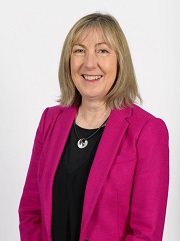 | 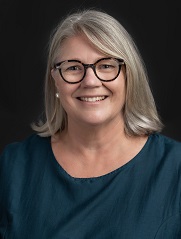 | 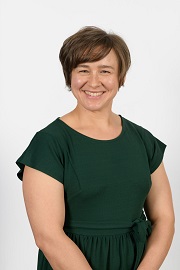 |
Prof Robyn Clay-Williams | Dr Colleen Cheek Project Manager | Dr Elizabeth Austin Research Fellow |
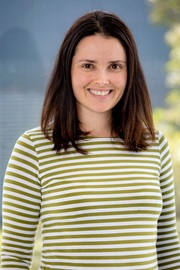 |  | 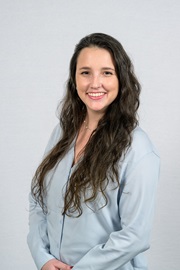 |
Dr Emilie Francis-Auton | Dr Nema Hayba Postdoctoral Research Fellow | Dr Natalia Ransolin Postdoctoral Research Fellow |
 | 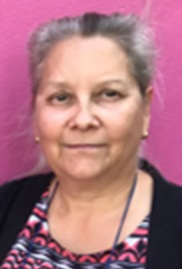 |  |
Dr Magali Goirand Ampaire | Ms Shai Grigg Indigenous Coordinator | Ms Lieke Richardson Research Assistant |
 | ||
Ms Amanda Dominello |
Project members - Macquarie University
Chief Investigators: Prof Robyn Clay-Williams; Prof Jeffrey Braithwaite; Prof Reema Harrison; Prof Yvonne Zurynski; Prof Peter Hibbert; Prof Rebecca Mitchell; Prof Henry Cutler; Prof Leanne Holt (Chair Aboriginal Advisory Group); Dr Louise Ellis; Dr Elizabeth Austin; Dr Kate Churruca.
Associate Investigators: Dr Kylie Gwynne; Dr Karen Hutchinson; Dr Ann Carrigan; Dr Bronwyn Newman; Dr Janet Long.
Project members: Dr Mariam Safi; Dr Natália Ransolin; Dr Alicia Norman (Health Economist); Dr Rezwanul Rana (Health Economist); Dr Tolesa Okuba (Statistician).
Project members - External
Chief Investigators: Dr Matthew Vukasovic (ED Director, Westmead Hospital); Dr Reza Ali (ED Blacktown Mount Druitt Hospital Hospital); Dr Donna Gillies (NDIS Commission); Dr Ramesh Walpola (UNSW).
Associate Investigators: Mr Aaron De Los Santos (ED CNC, Blacktown Mount Druitt Hospital); Dr Margaret Murphy (ED CNC, Westmead Hospital); Professor Paul Salmon (USC); Ms Jacqueline Hrast (DSS); Ms Anne Dwyer (DSS); Ms Shai Griggs (WSLHD); Dr Satish Mitter (ED Blacktown Mount Druitt Hospital).
Partners: Graeme Loy (WSLHD); Alison Derrett (WSLHD); Kylie Smith (ACI); Trevor Chan (ACI); Anthony Brown (Health Consumers NSW).
Background
The demand for urgent hospital care is increasing in Australia and internationally, placing prolonged strain on acute care services provided by Emergency Departments (EDs). Despite some variation associated with COVID-19, overcrowding in the ED is becoming more prevalent, and has been linked with an increase in adverse events and poor patient outcomes, including increased mortality. Patients are staying longer in the ED, with fewer seen within 4 hours. Siloed efforts have not worked and a new, integrated system-level approach to ED care that incorporates evidence-based human factors principles, and a patient-focused collaborative co-design process, is needed.
Patients are not an homogeneous group: ED performance is worse for patients who are older with multiple comorbidities, have a disability, present with a mental health condition, are Aboriginal and/or Torres Strait Islander, or come from a culturally and linguistically diverse (CALD) background. Understanding and addressing the specific needs of these priority patient cohorts has potential to improve not only the outcomes and care experience for these people, but ED performance overall.
Over the next 5 years, we will apply our accumulated expertise in consumer-focused co-design, human factors and emergency department care to optimise ED performance; improving patient outcomes and the acute care experience for the diverse demographic cohorts of consumers who seek care in NSW EDs.
Our research objective is to co-develop and implement new or adapted models of care for NSW EDs that improve ED performance (e.g., shorter wait times, reduced length of stay), improve patient outcomes (e.g. fewer re-presentations and people who did-not-wait to be seen), and improve patient experience (e.g. satisfaction, respect and feeling safe) for these five priority patient cohorts. The research will be conducted in Western Sydney Local Health District (WSLHD), in collaboration with our research partners WSLHD, the NSW Agency for Clinical Innovation (Emergency Care Institute; ECI), Health Consumers NSW, the Department of Social Services, and the National Disability and Insurance Scheme (NDIS) Quality and Safeguards Commission (NDIS Commission).
Aims
Our aims are:
Aim 1: To elicit needs and preferences for delivery of acute care in WSLHD from five priority consumer cohorts (older adults, people with mental health condition, people with a disability, Aboriginal peoples, people from a CALD background) and the clinicians who treat them.
Aim 2: To co-design, develop and implement consumer-driven new or adapted models of care that enable EDs to meet the needs of our five priority consumer cohorts.
Aim 3: Using implementation science methods, work with the NSW Emergency Care Institute (ECI) to scale-up and spread successful models of care from Aim 2 to EDs in public hospitals across NSW.
Design and method
The MyED project will adopt a system perspective, over three stages, to improve ED performance, patient outcomes and experience:
Stage 1: Understanding the current context of ED care and care preferences, through a five-step process:
Step 1.1. Ethnographic observations
Step 1.2. Qualitative interviews with ED clinicians and professional stakeholders
Step 1.3. Qualitative interviews and focus groups with older people and people with a CALD background
Step 1.4. Qualitative interviews and focus groups with people with a mental health condition or disability
Step 1.5. Qualitative interviews and focus groups with ED clinicians and Aboriginal peoples
All data collection associated with the Aboriginal peoples cohort will be determined in collaboration with an Aboriginal Advisory Group and approved by the Aboriginal Health and Medical Research Council (AH&MRC).
Stage 2: Developing new or adapting models of care through an Experience Based Co-design (EBCD) approach. Consumers, ED clinicians and the research team will partner to co-design new or adapted models of acute care to meet the needs identified in Stage 1. We will refine and test the care models using our ED Work Domain Analysis model (previously developed by our team for this purpose, see: https://www.mq.edu.au/research/research-centres-groups-and-facilities/healthy-people/centres/australian-institute-of-health-innovation/our-projects/ed-cognitive-work-analysis?SQ_VARIATION_1209086=0) and select the most promising models via a business case for local implementation at Westmead, Blacktown, and Mount Druitt EDs. ED performance, patient outcomes and patient experience will be analysed longitudinally using linked routinely collected data to determine performance trends for the participating EDs in comparison with NSW ED peer groups; comparative effectiveness of the new models of care will be assessed post-implementation, to inform further dissemination in Stage 3.
Stage 3: Disseminating findings through broader implementation and evaluation of proven models across NSW EDs.
Current Progress
Stage 1.1.1 – Ethnographic observations. The research team completed a total of 202 hours of observations in the three participating WSLHD emergency departments: Westmead, Blacktown and Mount Druitt. The team have analysed these data in conjunction with the interviews with clinicians and consumer cohorts.
Stage 1.1.2 – Qualitative interviews with ED clinicians and professional stakeholders. The research team collected and analysed over 20 hours of data collected through 44 interviews and one focus group.
Stage 1,1.3 – We obtained many insights from the interviews and focus groups with people from the culturally and linguistically diverse (CALD) community and from older adults and their carers. We completed 14 focus groups and 3 interviews with a total of 48 people from over 5 different language groups including Arabic, Mandarin, Cantonese, Hindi and Korean, and with 12 older adults and carers. Many thanks to those who shared their ED experiences with us!
Stage 1,1.4 – Interviews were conducted with 29 people who attended ED with mental health concerns and they shared many insights about their emergency department experiences. We also spoke with 16 mental health experts. We conducted interviews with 19 adults living with disability who generously shared their experiences of ED care, and we spoke with 17 other stakeholders including supported living home managers and academic experts. These data will be analysed at the end of 2024 and start of 2025.
Stage 2.1.1 – Stage 2 commenced in November 2024 with five co-design sessions with members of the CALD community and ED clinicians. The touchpoints, or priorities identified from Stage 1 (link to the document in Findings), guided the improvement areas.
We will be conducting co-design with both clinicians and patients and carers from the older adult cohort, the mental health cohort and the disability cohort, in 2025.
Benefits
The proposed project will provide a rigorous approach, and an innovative and comprehensive systems perspective, to improving ED performance and patient experience, incorporating views from a diverse group of consumers and clinicians, and leveraging our cross-disciplinary research and clinical expertise, to provide solutions that are innovative and practical.
Publications
Cheek, C., Hayba, N., Richardson, L., Austin, E., Francis-Auton, E., Safi, M., Ransolin, N., Vukasovic, M., De Los Santos, A., Murphy, M., Harrison, R., Churruca, K., Long, J., Hibbert, P., Carrigan, A., Newman, B., Hutchinson, K., Mitchell, R., Cutler, H., Holt, L., Braithwaite, J., Gillies, D., Salmon, P., Walpola, R., Zurynski, Y., Ellis, L., Smith, K., Brown, A., Ali, R., Gwynne, K., & Clay-Williams, R. (2023). Experience-based codesign approach to improve care in Australian Emergency Departments for complex consumer cohorts: The MyED project protocol, Stages 1.1 – 1.3. BMJ open, 13(7), e072908. https://bmjopen.bmj.com/content/13/7/e072908
Hayba, N., Cheek, C., Austin, E., Testa, L., Richardson, L., Safi, M., Ransolin, N., Carrigan, A., Harrison, R., Francis-Auton, E., & Clay-Williams, R. (2023). Strategies to Improve Care in the Emergency Department for Culturally and Linguistically Diverse Adults: a Systematic Review. Journal of Racial and Ethnic Health Disparities, 1-21. https://doi.org/10.1007/s40615-023-01876-z
Francis-Auton, E., Cheek, C., Austin, E., Ransolin, N., Richardson, L., Safi, M., Hayba, N., Testa, L., Harrison, R., Braithwaite, J. & Clay-Williams, R. (2024). Exploring and Understanding the ‘Experience’ in Experience-Based Codesign: A State-of-The-Art Review. International Journal of Qualitative Methods, 23. https://doi.org/10.1177/16094069241235563
Austin, E. E., Cheek, C., Richardson, L., Dominello, A., Long, J. C., Ellis, L. A., Norman, A., & Clay-Williams, R. (2024). Improving emergency department care for adults presenting with mental illness: a systematic review of strategies and their impact on outcomes, experience, and performance. Frontiers in Psychiatry, 15, 1368129. https://doi.org/10.3389/fpsyt.2024.1368129
Austin, E. E., Blakely, B., Salmon, P., Braithwaite, J., & Clay-Williams, R. (2024). Eadem Sed Aliter. Validating an emergency department work domain analysis across three hospital configurations. Applied Ergonomics, 117, 104240. https://doi.org/10.1016/j.apergo.2024.104240
Testa, L., Richardson, L., Cheek, C., Hensel, T., Austin, E., Safi, M., Ransolin, N., Carrigan, A., Long, J., Hutchinson, K., Goirand, M., Bierbaum, M., Blackly, F., Hibbert, P., Churruca, K. & Clay-Williams, R. (2024). Strategies to improve care for older adults who present to the emergency department: a systematic review. BMC health services research, 24(1), 178. https://doi.org/10.1186/s12913-024-10576-1
Findings
MyED Touchpoints for CALD populations
Funding Acknowledgement
The Australian Institute of Health Innovation, at Macquarie University is leading this research, together with our partners Western Sydney Local Health District, the NSW Agency for Clinical Innovation, the Department of Social Services, the NDIS quality and Safeguards Commission and Health Consumers NSW. The Australian Government Medical Research Future Fund is funding the project (APP2018361).
2022 MRFF Models of Care to Improve the Efficiency and Effectiveness of Acute Care (APP2018361), 5 years

Project status
Current
Centre and Research Stream related to this project
Centre for Healthcare Resilience and Implementation Science
Centre for Health Systems and Safety Research
Content owner: Australian Institute of Health Innovation Last updated: 22 Jan 2025 10:27am
